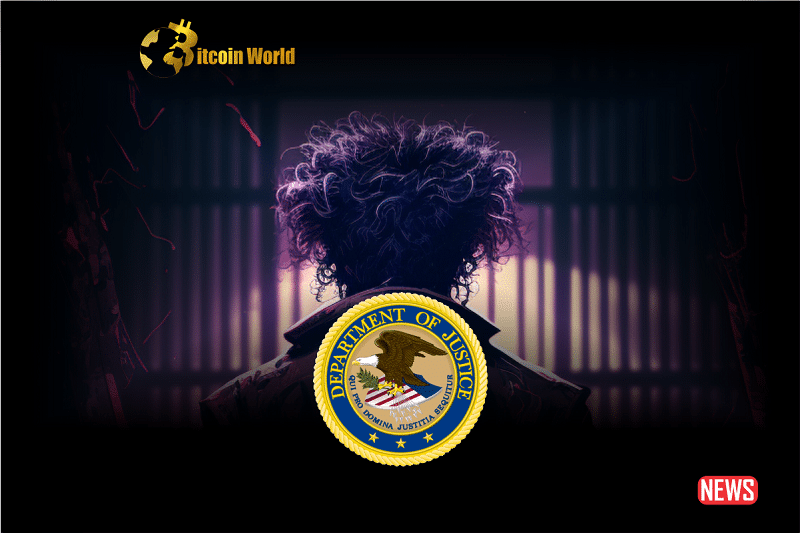The legal drama surrounding FTX founder Sam Bankman-Fried (SBF) is far from over, and the latest act is raising serious questions about fairness. SBF’s defense team is throwing down the gauntlet, accusing the U.S. Department of Justice (DOJ) of trying to stack the deck against them. The core of the dispute? Expert witnesses. Buckle up, crypto enthusiasts and legal eagles, because this is about to get even more interesting.
What’s the Expert Witness War All About?
Imagine going into a courtroom battle and being told you can’t bring in your best strategists. That’s essentially what SBF’s lawyers are claiming is happening. The DOJ has moved to disqualify *all seven* of the defense’s proposed expert witnesses. Yes, you read that right – all of them!
Why is this a big deal? Expert witnesses are crucial in complex cases, especially those involving intricate financial dealings like the FTX saga. They can break down complicated information for the jury, offering objective analysis and context. Think of them as translators between the jargon of finance and the language of the courtroom.
Defense Fires Back: ‘Foul Play!’
SBF’s legal team isn’t taking this lying down. They’ve come out swinging, accusing the DOJ of going way too far. Their argument boils down to this: the DOJ is trying to prevent SBF from presenting a proper defense. They claim the DOJ’s objections to the expert witnesses are flimsy and designed to shut down any evidence that might challenge the prosecution’s narrative.
In legal filings, the defense team has emphasized that the DOJ seems to be bending the rules of evidence and pretrial procedures to their advantage. They argue this isn’t just about technicalities; it’s about SBF’s fundamental right to a fair trial. Are we seeing a level playing field, or is the DOJ tilting the scales of justice?
Meet the Experts in the Crosshairs
So, who are these expert witnesses causing such a stir? Let’s take a closer look at a few of them and why the defense believes they are essential:
- Thomas Bishop (Consultant): Envisioned to potentially counter DOJ witness testimonies. In complex financial cases, rebutting claims with expert analysis is vital.
- Brian Kim (Data Analytics Specialist): Another expert who could offer crucial data-driven rebuttals to the prosecution’s evidence. In the digital age, data analysis is key to understanding financial flows and transactions.
- Professor Bradley Smith (Capital University Law School): A former Federal Election Commissioner, Professor Smith could provide context on the often-murky world of political contributions. Understanding standard practices is essential when dealing with allegations related to campaign finance.
- Expert on FTX Terms of Service: In the digital world, terms of service are the rulebook. This expert would break down the intricacies of FTX’s terms, ensuring the jury fully grasps the platform’s operational framework.
- Joseph Pimbley (Consultant): Ready to demystify FTX’s software functionality. Understanding how the platform actually worked is crucial for the jury to assess allegations of fraud or mismanagement.
DOJ’s Counter-Argument: Relevance and Credibility?
The DOJ isn’t silent in all of this. They’ve pushed back against the defense’s accusations, arguing that the proposed expert witnesses are either irrelevant to the case or their testimony wouldn’t be appropriate. They’ve also raised questions about the credibility of some of these experts.
Interestingly, the defense has also cast doubt on the credibility of key DOJ witnesses, namely Gary Wang and Nishad Singh, former FTX executives who are now cooperating with the prosecution. This sets up a classic courtroom drama – a battle of experts and a challenge to witness reliability on both sides.
Professor Easton: A Point of Contention
One expert witness, University of Notre Dame Professor Peter Easton, has become a particular point of contention. The DOJ claims the defense has misrepresented Professor Easton’s intended testimony. According to the prosecution, Professor Easton isn’t there to judge whether FTX’s actions were proper or improper. Instead, they say his role is to provide a factual, descriptive account of customer fiat deposits, using established financial accounting methods.
The DOJ emphasizes that Professor Easton’s testimony will be grounded in rigorous methodologies, including tracing funds between bank accounts – a crucial aspect in understanding financial transactions. This clarification seems aimed at addressing concerns about the relevance and objectivity of Professor Easton’s expertise.
What’s Next? The Waiting Game
The court now has to decide whether to allow these expert witnesses to take the stand. This decision could significantly impact the course of the trial. The defense is clearly signaling that they believe their right to a fair trial is at stake, while the DOJ is standing firm on its objections.
One thing is certain: this legal battle is far from over. The dispute over expert witnesses highlights the high stakes and the intense preparation on both sides. As the case unfolds, the cryptocurrency world and legal observers will be watching closely to see how this crucial aspect of the trial plays out. Will SBF get to present his full defense, or will the DOJ succeed in limiting the evidence the jury hears? The answer to that question could very well shape the outcome of this landmark case.
Disclaimer: The information provided is not trading advice, Bitcoinworld.co.in holds no liability for any investments made based on the information provided on this page. We strongly recommend independent research and/or consultation with a qualified professional before making any investment decisions.




